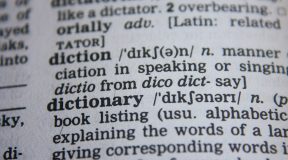In this article, we’ll take you through the experience, show you the basics of how writers build pieces of content that when done right, almost magically, bring the traffic but also evolve the very content found on the web.
Many people like to outsource their writing to a writer with the skills to develop powerful answers about the niche or topic of their business. Writing can be daunting, it can be arduous, and time-consuming. But it can also be enlightening, a way of growth hacking awareness on many topics and developing a skillset for researching, writing, contextualizing, and pattern recognition (creativity and synergies formed in the writing to bring new ideas, for example).
Writer Researching to Write Content vs. Researcher Looking for Answers

Writing Research and Reader Research Are the Same; The Difference is one Writes, Updates (posts), and Consolidates the Found Answers. The available information becomes more concise, consolidated, and more potent. The reader does less work to find more information in the long run.
It’s more than just the information in the article- it includes delivery (formatting, tone, etc), consideration for the audience’s way of thinking, and knowing what the audience wants, needs, and desires when they go looking for the (specific) information. It’s in the choice of words that make or break whether or not the reader will comprehend the information, so word choice is vital.
Internet Content is Part of a Synergy with the Search Engines

Many don’t know the first thing about writing, researching, or producing an article that brings results in the search engines. There are a lot of reasons that don’t include a lack of skillsets. Some are that they have no time to learn about the online formatting or Google guidelines. Many simply want to focus on their business and let the writers handle the content.
Potent content brings traffic through search engines, organic traffic, and things like comments left on the article, likes, shares, and being linked to from another site. Most people know this, but don’t feel qualified or knowledgable enough (or again don’t have time) to build a skillset for writing and researching specifically in the format required to meet the demands of the algorithm (Google, etc).
They want the value but want to make sure it’s done right, so they outsource to professionals whose finger is on the pulse of the latest information available on the topic. Freshly written and researched content is internet gold.
Writing Starts With a Niche keyword

Often the professional writer is presented with an order where the main keyword is used a few times and the keyword itself works as the overall theme/niche to be written about. This is where their research starts. With just this to go on, the writer goes to Google (and other search engines) and uses the very system their work will help when their article is posted and indexed by Google (and read by the searcher), to do what the reader themselves are doing while researching.
The reader is doing the same thing the writer does only the goal is different. The reader is looking for information to solve a problem or inquiry, the writer is trying to do the same thing but to a more extreme degree to cover as many bases as possible. The writer is trying to find ALL the available content covering the problem, from many angles, but also to find the innovative and creative ideas they search a bit more.
The reader ends up getting a more potent article. Just think, each article you read to a higher or lesser degree, was created with synergy, complete answers, and fresh ideas in mind. They also try to know their audience’s thinking so they can tailor the research for a specific situation or overall need.
Updating the Web One Article at a Time

Writers Consolidate Data From Many Sources, Shrinking the time you have to research to find that information like they did
They may take ideas from 5 articles which for the most part would have been a waste of reading other than the nuggets of information they found and consolidated to create a more useful answer that is also void of all the information that didn’t apply. In a sense, they save you time by doing the work for you and organizing not only the information but shaping it to a specific niche and need within the niche.
Businesses Promoting with Content Propagate FRESH and Useful Content Forward

For the business using these articles for content marketing, the job is outsourced it to professional writers whose job it is to not only write about something potently, but to evolve the information for modern times, situational (niche angle/focus), and in a sense, to keep the information online up to date.
As the same information is shared and consolidated, Google sees it as more useful, more fresh and up to date (potent, useful), and the outdated research you used (that at one time was current) falls off. As different people with different needs and focuses write new content they also expand the topic (show various other ways to synergize and creative ways to develop answers to your problem or query). So sometimes it’s not about updating but rather about broadening awareness.
Formatting is Important Because it Fits Your Content Neatly into the System that wants to Drive Your Content to the Right People
The article’s formatting is important because it allows Google to easily find, index, and figure out what your page is about and send the information to the right people.
Hyperloop
Think about Elon Musk’s Boring (drilling sideways?) company building those underground hyperloop tunnels. (see above video to catch up).
This system works by driving your car into a platform, locking it in, then they warp you hundreds of miles an hour underground (no obstacles) to your destination. Say from LA to Chicago as fast as a plane.
Much like this hyperloop, your content/writing is installed in a vehicle (page, formatting, site it’s on, niche it’s in etc) that vehicle is then placed on a platform (Google indexes then drives your page into the search engine to be found by searchers).
The internet (search engine technology) is the hyperloop in this example. For the system to work efficiently and effectively, the variables of the formatting essentially make your content fit like a glove in the search. The content, formatting, site it’s on, links out, and information value, being just right, makes it easy for Google to find your audience and serve them your article without obstacles, a straight shot.
My point is that the system (Google Search) can transport your page/article/content to the destination (researcher looking for answers) but only if it’s in a compatible format, and locked into the E-A-T guidelines that make it eligible (platform?) to be in the system in the first place (useful, potent, formatted, links to more research for the reader).
More importantly, the reader, like the writer, wants to skim over the page and see quickly if the information they need is there
- They want to scan subheadings (bolded for ease of seeing quickly) that properly describe the content of the paragraph below it.
- They want to read the sections that have useful information and ignore the rest or they want to see if the article as a whole may be useful by scanning and seeing essentially a table of contents spread throughout the article (subheadings).
- They want to read potently (concise) written paragraphs that don’t waste their time with common sense or fluff information- or that doesn’t live up to or enhance the subheadings promise (give you details not obvious in the subheading).
- Nobody wants to read a paragraph only to find nothing new you couldn’t know by the subtitle.
- They want to land on an article that quickly gives them an idea of what it’s about and that contains links out to more resources (other pages) that may give them more information not covered in your content but overviewed in it.
The Act of Researching Teaches You Naturally How You Should Write and Format Your Content


Basically, if you know how to research well, you will have no problem writing your content and formatting it correctly. In normal research, we inherently figure out that the best pages have formatting that makes the process of finding information fluid and intuitive.
Like scanning book titles in the book store (on or offline) to find what you need (category), then reading the book cover/jacket and the table of contents to see if this book seems to have the information you need.
They can even skip to a chapter and start reading to see if they like the tone of the author and potency of information in a section that matches what they feel they may need to know to solve it.
So essentially, the way you research to figure something out in the first place is the same way the writer researches to get information, ideas, and different angles (they didn’t write about before) to gather together and use to inspire their content. (Book Authors do the same thing to learn how to write/format their books and research etc).
Writer Research Benefits The End Reader When They Spin New Angles

The difference, really, is only that they do the work for you in the article. Instead of your research being daunting, they research (saving you steps) the concept deeply and over time accumulate knowledge that shapes even better more potent articles.

You may research 5 articles and find more than enough information to solve your problem/question, but in reality, your getting consolidated facts, the newer rendition as Google likes to give you content that contains updated material first. your getting pre-researched, cultivated facts that are run through the author’s unique perspective, and based on work they researched on another person’s perspective and so on.
Each article written from research is essentially evolved and added to many others who did the same before them. So researching quickly and finding potent answers is the achievement of today’s internet and search engine technology- including how articles are written, valued, and formatted.
The researcher finds answers and moves on. The writer finds answers already out there, and uses the research (and synergy of all information found then and before) to evolve and consolidate, concise up, and deliver even more powerful content.
Conclusion
How cool is it that this intellectual ecosystem is always itself evolving as a side effect of the marketing process, a sort of more permanent version of the marketing that doesn’t try to sell anything but rather informs (often to drive the reader to a product or service page at some point but none the less is a force bringing the motivation of the masses of writers to earn a living, learn and grow a skillset, and help the world figure out this thing called life!
Hopefully you now appreciate the system, it’s purpose, and the power of synergy (writers updating the pool of data we depend on) created in the process. If you want to become a writer yourself, you now know where to start! Get Researching! Even the system of content marketing itself has articles to explain IT!






